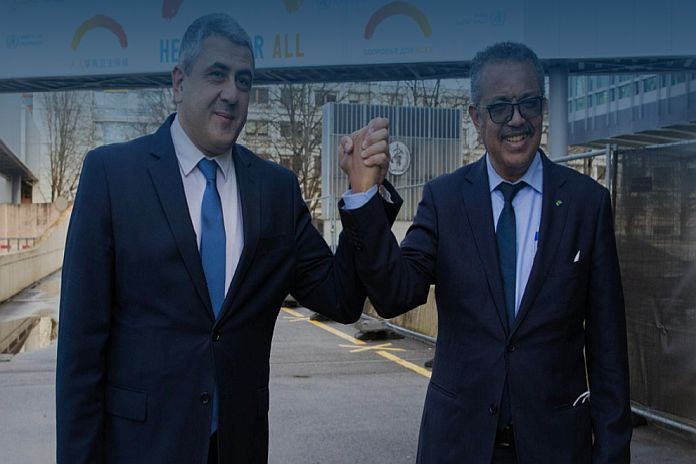MADRID, Spain, (UNWTO) – The World Tourism Organization (UNWTO) and the World Health Organization (WHO) have called for the lifting of travel bans as they do not provide added value and continue to contribute to economic and social stress. The two UN agencies agreed to collaborate on a global trust architecture for recovery of the travel sector.
Over recent days, a growing number of countries around the world have started easing their rules for international arrivals, including the easing of travel bans. These decisions are in line with WHO’s latest recommendations for safe international mobility, which highlight the ineffectiveness of blanket restrictions in controlling virus transmissions. Such a trend is also consistent with UNWTO’s repeated warnings of the great social, economic and development harm of restrictions.
UNWTO and WHO: a shared approach
In Geneva, the leaders of UNWTO and WHO agreed on the importance of easing or lifting travel bans. Blanket restrictions should be replaced with risk-based, evidence-informed, context-specific policies.
“Guided by UNWTO, global tourism has followed WHO advice from the very start of this crisis,” said UNWTO secretary-general, Zurab Pololikashvili. He underscored the need to “continue to do so, and to open up again, safely and responsibly, and allow tourism to deliver on its unique potential as a driver of recovery and growth”.
Risk and evidence-driven approach
According to the WHO International Health Regulations (IHR) Emergency Committee on COVID-19, all measures applied to international travellers should be based on “risk assessments – including testing, isolation and vaccinations”. Furthermore, the financial burden of such measures should not be placed on travellers themselves.
“As countries ease travel restrictions, health must remain the key priority. By basing their decisions on evidence and a risk-based approach adapted to their specific context, countries can find the right balance between keeping people safe, protecting livelihoods and the economy, and keeping borders open”, said WHO director-general Dr Tedros Adhanom Ghebreyesus.
Building a global trust architecture
The two UN agencies also stressed the need for clear and consistent rules relating to health and travel. There is a need for building a global trust architecture for societies and economies in the context of the pandemic, and there is a “real opportunity for tourism to contribute to that process, with UNWTO playing a critical role”, said Dr Michael Ryan, executive director WHO’s health emergencies programme.
Properly managed, tourism has the potential to act as a force for development and opportunity, as highlighted in the sector’s enhanced relevance in the wider United Nations development agenda. Destinations around the world report increased tourist arrival numbers on the back of easing or removing restrictions. This trend offers the potential to kickstart economic recovery and put social development progress back on track.
Among the countries to have revised their travel restrictions is Switzerland, one of Europe’s leading destinations, which welcomed the UNWTO delegation at the beginning of a week of key meetings.





